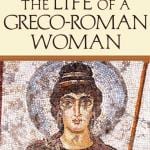Gerald Bray
Preaching the Word with John Chrysostom
Bellingham, WA: Lexham Press, 2020.
Available at Lexham and Koorong
By Laura Thierry
In this volume of Lexham Press’s Lived Theology series, Gerald Bray takes up the life and preaching of John Chrysostom. A lesser-known figure of the patristic period, Chrysostom is nonetheless a deeply rich well to draw from for present theological and ministry consideration. On this account, Bray’s work fills a significant gap – providing an eminently readable introduction to the Golden Mouth’s life, thought, and example.
Consisting of only five small chapters, this book is very approachable. Chapter one begins with a brief though engaging sketch of John’s life, highlighting his trajectory towards and life as priest, preacher, patriarch and bishop. An overview of his works, and a helpful draft of life within his context follow. Here John’s approach is also discussed. Bray offers a very helpful sketch of Chrysostom’s understanding of accommodation, of how God reveals himself to the world, and then tracks this through the sections on Chrysostom’s preaching.
The work then turns to consider three collections of John’s sermons. Chapter two explores his teaching on creation, primarily drawn from the Genesis sermons. Chapter three considers his depiction of Christ in and through the sermons on John’s Gospel. Chapter four examines his close association and engagement with the apostle Paul example and writings. A final chapter briefly considers the way John’s legacy has impacted the church throughout time. Finally, Bray has collated a short list of recommended works for further exploration.
All in all, this book is a beneficial introduction to one of the great communicators of the Christian church. In my observation, the volumes of the Lived Theology series thus far tend toward highlighting one of two primary emphases: (1) of considering and drawing out implications for current ministry application from figures of historical interest, while providing just enough historical background to make sense of the figure’s application, or (2) of considering a figure in their original context and engagingly providing the most relevant information to make them accessible for Christian’s today. The first approach has constructive application necessarily built in, while the second allows the reader to draw their own implications regarding why and how the figure speaks to today. Bray’s volume sits further towards the second of these two approaches. It does an excellent job in explaining Chrysostom in his original context and exegeting his works. It delves into heavy theological, philosophical and historical ground in a manner that enables the reader to gain a mental foothold on some very large thematic concerns in the Golden Mouth’s writing (such as the doctrine of accommodation), but leaves the reader to consider for themselves exactly what Chrysostom speaks to their current context. Bray writes excellently as an historical theologian, providing an eminently readable historical and theological introduction. The reader will need to continue this work if they are to apply or draw the Golden Mouth’s treasures into their specific contexts. But this task is one that Preaching the Word with John Chrysostom will make eminently rich a rewarding.
Laura Thierry a PhD candidate at Ridley College, researching medieval hagiography, Christology, and theology of the body.












